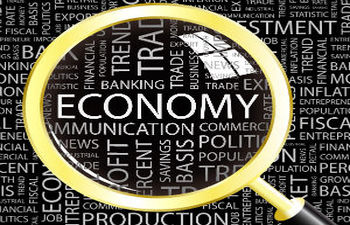The Pakistan Economic Survey is a significant report that provides detailed information and analysis of the country’s economy. Recently, the Ministry of Finance released the latest survey for 2022-2023.
The report covers various aspects of the economy, including GDP growth rate, inflation, and macroeconomic trends. In this year’s survey, climate change has been recognized as a crucial issue, but its integration into the country’s development goals is questionable.
While climate change is acknowledged as a cross-cutting subject, its incorporation into development planning seems insufficient. The report highlights that climate change goes beyond just humanitarian and relief efforts and emphasizes the need for proactive measures to build resilience in communities, infrastructure, ecosystems, and the economy.
However, except for the chapter on ‘Energy’, the other chapters of the survey fail to mention climate change or address issues related to adaptation, mitigation, technology transfer, or climate financing. There is no clear indication of how climate risks impact development costs, productivity, GDP growth rate, commodity prices, inflation, or poverty levels. Furthermore, the survey does not effectively link other sectors with the Sustainable Development Goals, except for a brief mention in the ‘Education’ chapter.
The initial chapter on ‘Growth and Investment’ acknowledges climate change as a threat to global economic growth, but it does not provide specific actions or recommendations for the national economy. The chapter fails to recognize how climate change hinders economic growth and overlooks potential investment opportunities in low-emissions and resilient development.
The ‘Agriculture’ chapter also neglects to address climate adaptation, despite significant losses incurred due to floods. Changes in weather patterns affect cropping patterns, yields, and crop suitability, but these issues are not mentioned. Lessons from past flood losses are not drawn, and no recommendations or investment priorities are identified. Additionally, the role of women in agriculture and their vulnerability to climate-triggered disasters is disregarded.
Chapters on ‘Manufacturing and Mining’, ‘Fiscal Development’, ‘Capital Markets and Corporate Sector’, and ‘Trade and Payments’ fail to consider the costs of mitigation, alternative technologies, energy transitions, or emerging threats related to carbon tariffs. The economic impact of frequent disasters on domestic and international finance is overlooked. The ‘Public Debt’ chapter does not provide guidance on mobilizing private capital or forming public-private partnerships for sustainable development.
Chapters on social sectors, such as ‘Education’, ‘Health & Nutrition’, ‘Population, Labour Force and Employment’, maintain a disconnected approach and do not explain how climate-induced migration, urbanization, and demographic trends affect service delivery. The ‘Transport and Communication’ chapter ignores the need for investments in public or mass transit systems, cleaner fuels, and air quality improvements for human health.
The ‘Information Technology and Telecommunication’ chapter focuses on cybersecurity but neglects the potential of innovative technologies for enabling a better, safer, and more sustainable future. The ‘Social Protection’ chapter highlights the absence of local-level institutions for climate disaster relief and the reliance on the Benazir Income Support Programme, which was not designed for such purposes.
The only chapter that specifically addresses climate change is the ‘Energy’ chapter, which mentions Pakistan’s commitments in its Nationally Determined Contributions (NDC). However, the chapter lacks progress reporting on the National Climate Change Policy or NDC, and most of the listed initiatives are still in the planning stage. The chapter does not consistently link these initiatives with the NCCP or NDC, and they could have been discussed in other chapters of the Economic Survey.
Overall, the level of attention given to climate change in the Pakistan Economic Survey is inadequate. Climate change should be more prominently featured and integrated into various sectors and development goals. The survey should address the economic impacts, identify investment opportunities, and align with national policies and international commitments related to climate change.
To read the full article visit www.dawn.com





CVS Pharmacy is the best Us based drug store it sells medicines. Have you purchased health products from CVS in the past? Then you are eligible to participate in the CVS Health Survey. You don’t need hours of time to take part. Just in minutes, you may complete the survey at the official survey page to get a $1000 survey reward.